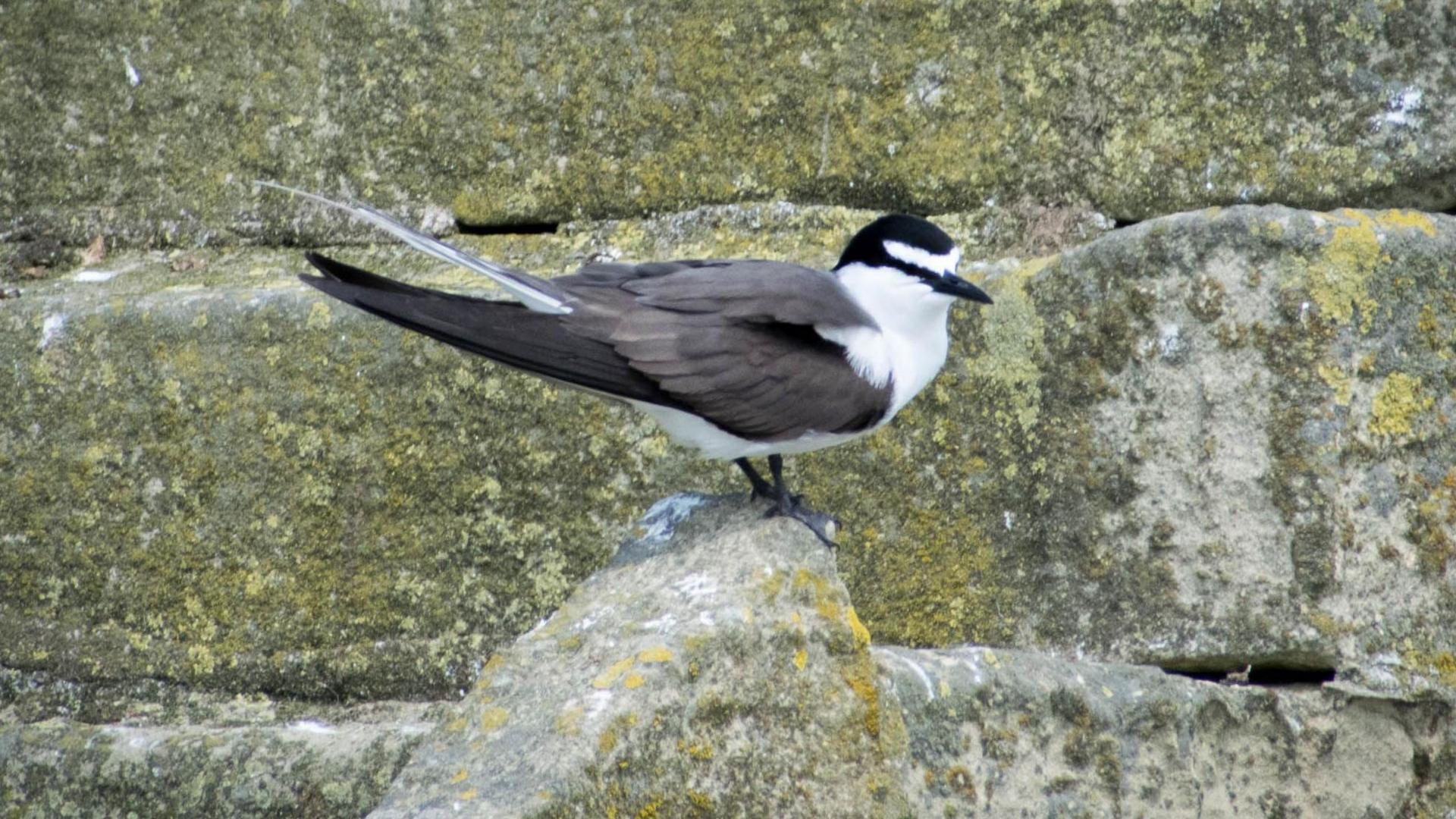Rare seabird chicks successfully reared
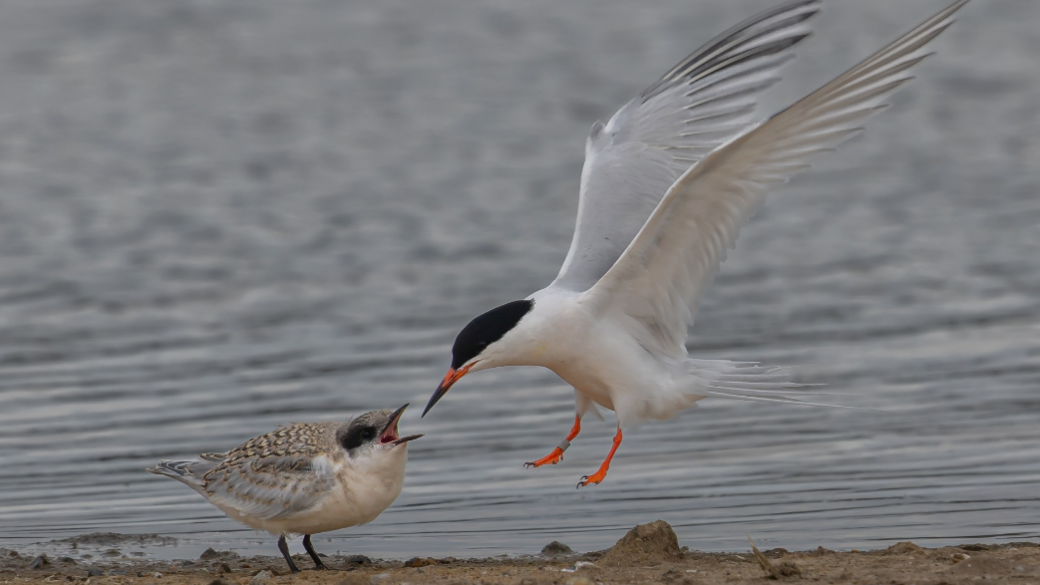
The chicks were nurtured and feed by their parents
- Published
A pair of rare sea birds have successfully bred and raised chicks on the Hampshire coast.
Two roseate tern chicks hatched at Normandy Lagoon, part of the Lymington-Keyhaven Nature Reserve, in June.
The species is among the UK's most endangered seabirds.
Hampshire County Council said two chicks had successfully fledged before departing with their parents on their migration to Africa.
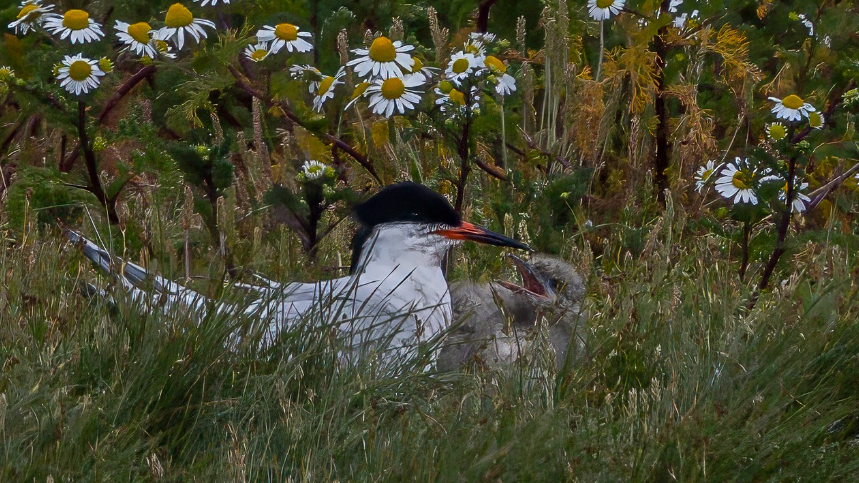
Roseate terns have successfully produced chicks
The council worked with Hampshire Ornithological Society and the RSPB over the past few months to safeguard the nest and eggs.
Both chicks grew rapidly nurtured by their parents with a steady supply of sand eels and small squid.
They took their first flights by mid-July and had since departed on the bird's annual migration south, the council said.
This was the first record of the species attempting to breed and produce chicks at this part of the Hampshire coast and follows concerted efforts to created a "tailor-made habitat" for birds on the lagoon.
Fencing was installed to deter predators.
This has led to increases in nesting birds including avocets, redshanks, ringed plovers and oyster catchers, as well as little terns and common terns.
Similar size to a Common Tern but very white-looking, with a black cap, the roseate tern is one of Britain's rarest seabirds. There are thought to be only about 100 breeding pairs around the coast.
Historically roseate terns have only been known to breed in extremely low numbers on off-shore shingle islands on the Solent coast, with a maximum of just three pairs in the area in any year.
The lagoons at Lymington-Keyhaven Nature Reserve are not accessible to visitors, they can be viewed from the seawall path.
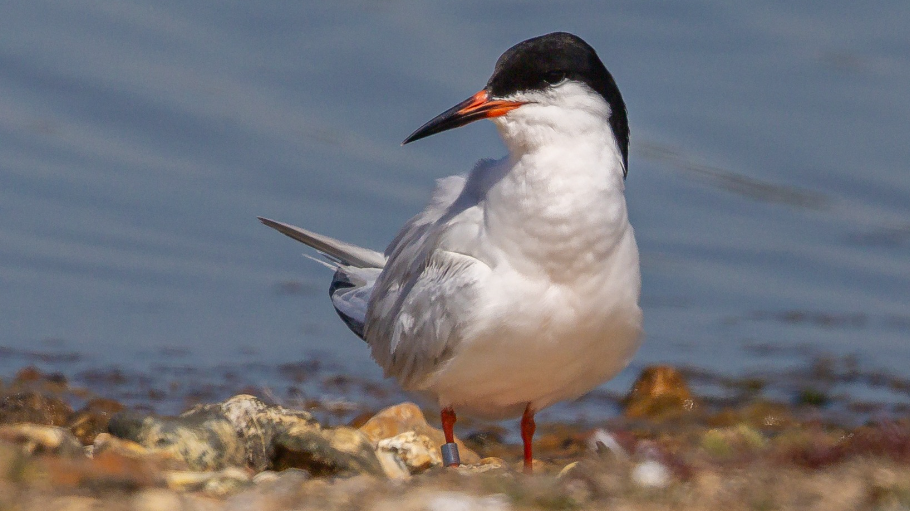
The birds and their chicks have left the lagoon for Africa
Follow BBC South on Facebook, external, X (Twitter), external, or Instagram, external. Send your story ideas to south.newsonline@bbc.co.uk, external or via WhatsApp on 0808 100 2240, external.
- Published12 August 2024
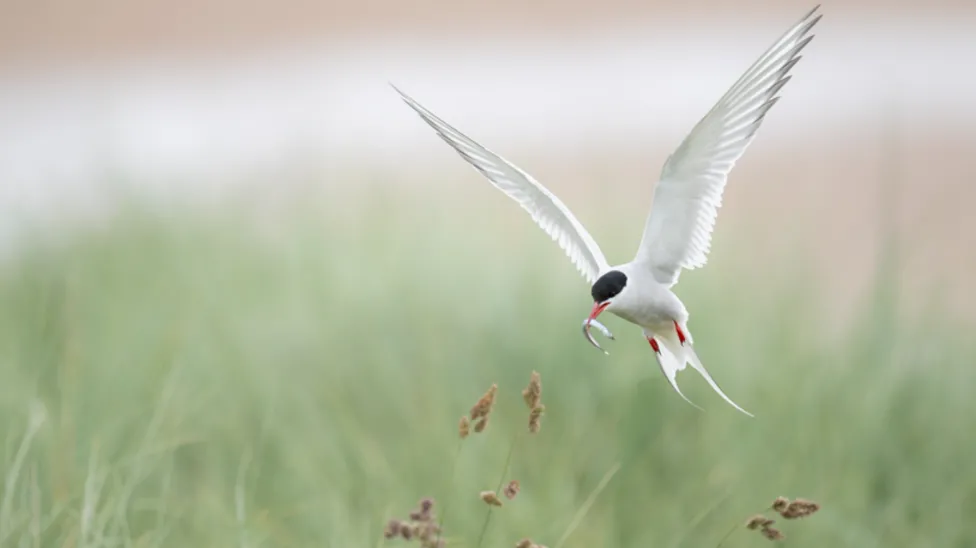
- Published27 July 2024
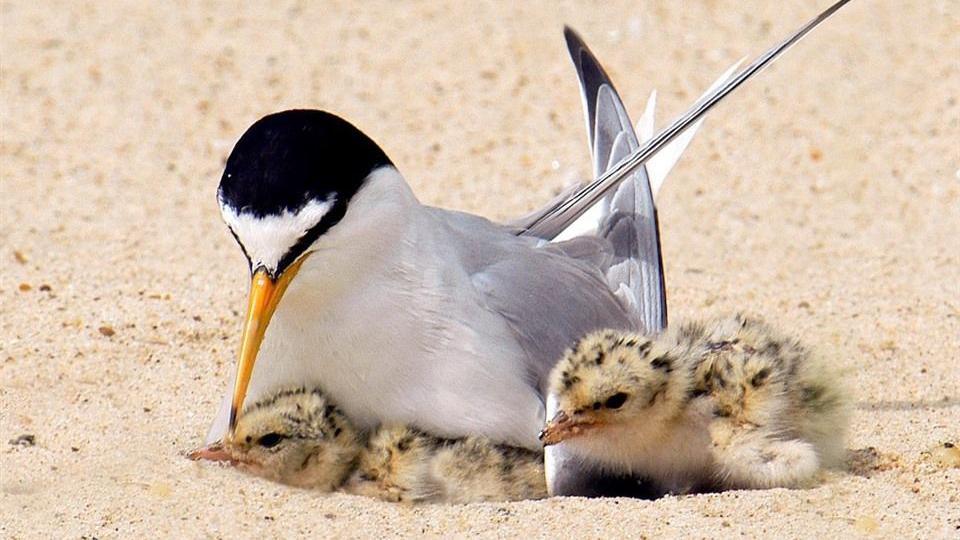
- Published10 June 2024
